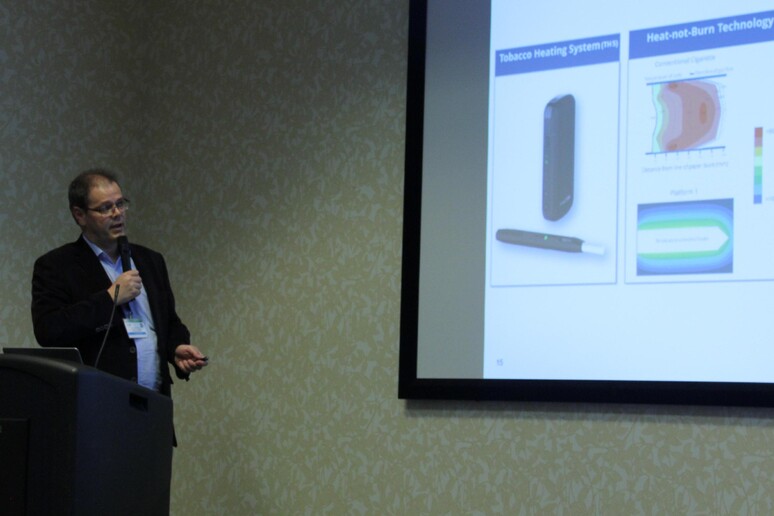The latest scientific studies on
products that could reduce the risk of smoking-related illnesses
were presented to the international scientific community
gathered this week in New Orleans for the 55th annual Society of
Toxicology meeting, the most important forum on toxicology.
The project was presented by professor Manuel Peitsch, head
of a work group made up of more than 400 scientists with proven
experience in various scientific disciplines who have worked for
more than 10 years in Philip Morris International research and
development centres in Neuchatel, Switzerland and Singapore.
Over two billion US dollars have been invested with the
goal of developing "reduced risk products" that cut down toxic
or potentially toxic components while leaving the adult smoker's
enjoyment unchanged and coming as close as possible to the
flavour and ritual characteristics of cigarettes.
According to PMI studies, which were presented during a
symposium at the meeting's ToxExpo, the main cause of
smoking-related illnesses is combustion.
Eliminating combustion would reduce the formation of
harmful or potentially harmful substances by an average of 90%
compared to cigarette smoke.
"The goal of this research was to compare in the laboratory
the effects of cigarette smoke to stopping or substituting the
same cigarette with heated tobacco," said professor Peitsch.
"These studies provide additional, encouraging elements on
the potential of reducing the damage of contracting
smoking-related illnesses," he said.
"We're particularly proud of their publication in the
peer-reviewed scientific journal of the Society of Toxicology,
one of the world's most authoritative in its field".
Philip Morris scientists are therefore working on a
technology called "heat not burn", the so-called "cigarette of
the future", which was introduced in the Italian market in
recent weeks.
The technology is composed of a heater called iQOS, which
contains an internal tobacco cartridge called a heat stick.
The heat stick is heated by a platinum and ceramic sheet
that keeps the temperature under the burning point.
"Before confirming that the system has less risk or a
reduced risk, we will continue to rigorously check the data
obtained by scientific research," Peitsch said.
"That confirmation could also be subject to review and
governmental approval around the world, just as it is for the
process of validating our scientific proof in the United States
with the Food and Drug Administration," he said.
"The results up to now are very encouraging and we are
confident in a positive result of the FDA review".
The long-term goal of the team led by the former Novartis
scientist is ambitious.
"More than a billion people between the age of 20 and 25
are smokers today. Our hope is to offer them, and to all adult
smokers, an alternative through a product able to reduce risks
to their health. It's an enormous challenge that can't ignore
the completion and validation of all research underway, in close
cooperation with government health organisations worldwide with
whom we are already working favorably".
ALL RIGHTS RESERVED © Copyright ANSA











